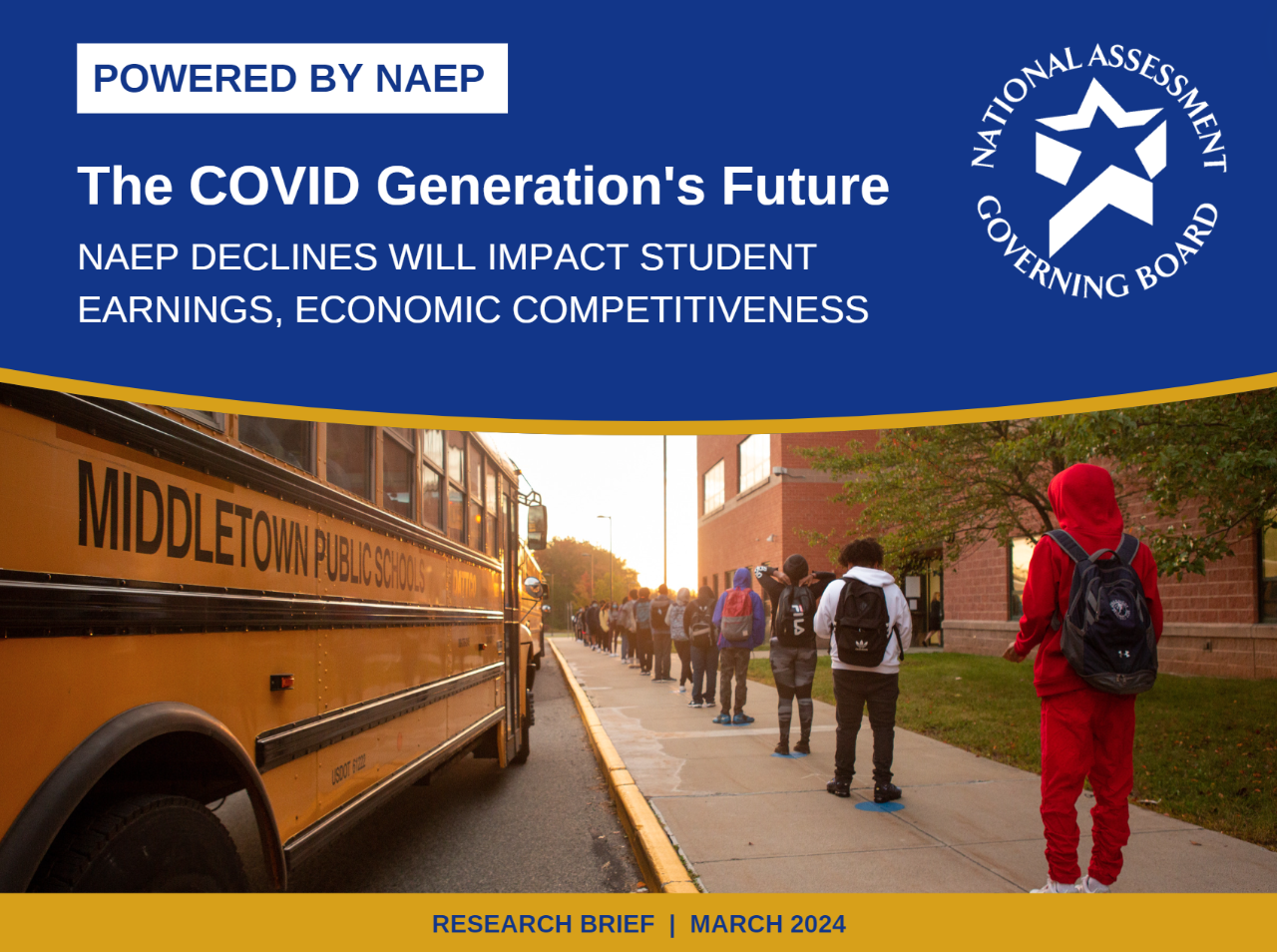
Powered by NAEP
“How are U.S. students doing academically?”
The Nation’s Report Card is the only nationally representative measure of K-12 student academic progress over time, allowing us to answer this critical question.
Educators and policymakers use the Nation’s Report Card to pursue policies and practices that drive progress for students — the resulting progress in policy, practice, and research is Powered by NAEP.
Powered by NAEP: Pandemic-Era Changes
Our Powered By NAEP data tool allows you to see where students in your state or urban district were before the pandemic (2019) and how they are doing after disruptions to learning. In many cases, NAEP scores showed stagnation and declines long before the pandemic.
Powered by NAEP: Chronic Absenteeism
In this Powered By NAEP brief, we highlight what The Nation’s Report Card and data from the National Center for Education Statistics reveal about absenteeism and implications for student achievement. When students aren’t in school, how can they learn?
Powered by NAEP: Civics
In this Powered By NAEP brief, we highlight what students actually learned in their civics classes as seen on The Nation’s Report Card. Explore these overlooked findings that shed light on an important subject students need to understand to participate in democratic society.
Powered by NAEP: Economic Competitiveness
In this Powered By NAEP research brief, we highlight pivotal research from leading economists who have analyzed NAEP math achievement declines and quantified the ways in which they likely will impact future earnings and other outcomes for groups of students — and what this means for the nation.
Powered by NAEP: States in Action
For states, NAEP is a valuable tool for measuring trends in student achievement and for comparing performance and progress with other states. NAEP results also serve as a catalyst for policy change. States use NAEP and its frameworks to revise their own academic standards and assessments and to make data-based decisions about improving education.
- Measure and validate educational progress over time
- Compare and learn from other states
- Inform updates to state standards and assessments
- Promote greater transparency about student performance
- Galvanize policy change to improve teaching and learning
Nation's Report Card Can Drive Post-Pandemic Progress, be a Catalyst for Change if States Embrace the Data/The 74
In this op-ed, the Governing Board's Executive Director Lesley Muldoon shares examples of efforts across the country fueled by data from The Nation's Report Card to close learning gaps worsened by the pandemic.

Virginia: Promote greater transparency about student performance.
Results from The Nation’s Report Card can be used to provide families, community members, and policymakers with greater insight into what students know and can do.
In 2022, Virginia drew attention to differences between student proficiency rates on state tests and the rate of NAEP Proficient in the commonwealth. Just over one third of Virginia’s fourth graders scored NAEP Proficient or above on the 2019 NAEP Reading assessment, compared to 75% scoring proficient or above on the state test. By making these differences transparent, Virginia’s leaders raised concerns about education in Virginia, compelling action to improve instruction and learning.

Mississippi: Inspiring states to take action on the Science of Reading
NAEP is the only assessment that allows comparisons of student performance across 53 states and jurisdictions, including the District of Columbia and Department of Defense schools. State leaders can compare their performance to that of similar states and learn from other states with notable gains.
For many years, Mississippi’s NAEP reading scores ranked among the lowest in the nation. In 2013, these results spurred sweeping changes to the state’s approach to reading instruction and teacher training. Since then, Mississippi’s reading scores have risen significantly, inspiring other states (including North Carolina, Ohio, Tennessee, and Kentucky) to adopt some of the same reading policies.

Colorado: Galvanize policy change to improve teaching and learning
In 2022 and 2023, The Nation’s Report Card provided the first nationally representative measures of the pandemic’s toll on reading, math, U.S. history, and civics achievement. Many states are using insights from these data to drive efforts to support learning recovery in the wake of the pandemic.
After results from NAEP and state assessments showed a decline in math skills, a bipartisan coalition of policymakers in Colorado approved new investments in math tutoring programs and teacher training.

